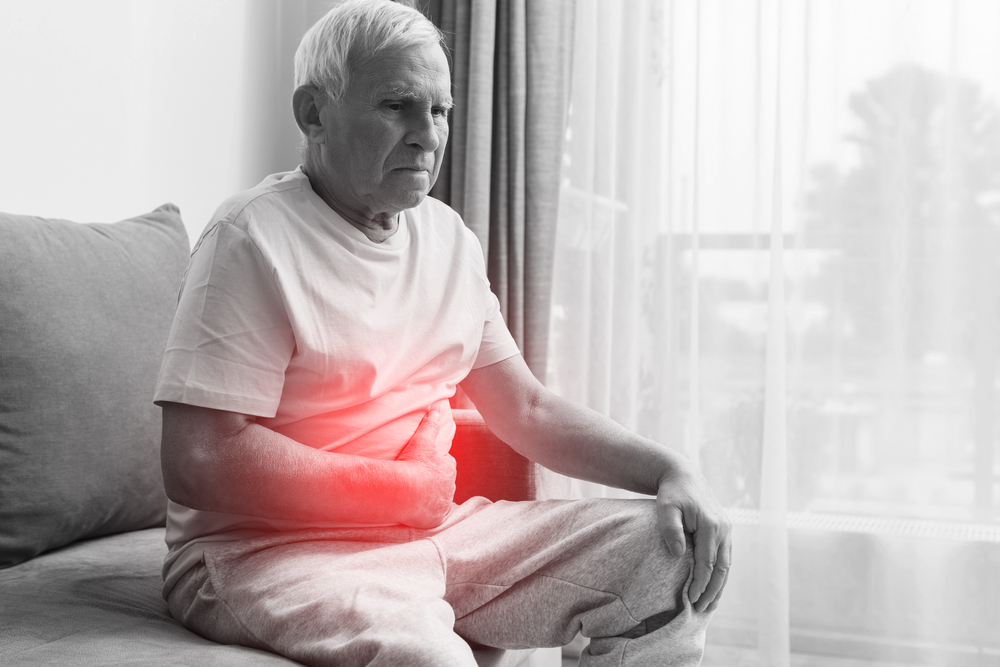Stomach or skin ulcers are common health complaints. Proper medical attention, as well as diet and lifestyle adjustments are usually sufficient to address these issues. However, are there situations where an ulcer could progress into a more serious problem? For example, can ulcers become cancerous?
At SIE Medical, our team is committed to answering these questions with clarity, compassion, and medical insight. While the majority of ulcers rarely lead to cancer, there is a connection between tissue damage, chronic inflammation, and an increased risk of malignant transformation. Understanding this relationship can help you make better decisions for your long-term health.
What Are Ulcers?
An ulcer is an open sore that develops when the surface of the skin or a mucous membrane becomes eroded due to injury, infection, poor circulation, or chemical irritation. Ulcers can appear in many parts of the body, including the digestive tract, mouth, or skin.
The process begins with tissue breakdown. Stomach acid, bacteria, or other harmful agents can aggravate an area, preventing it from healing properly. Over time, the constant cycle of damage and repair creates a vulnerable environment where abnormal cell growth can occur. If those cells mutate and escape the body’s normal checks and balances, cancer may develop.
Why Damaged Tissues May Lead to Cancer
One of the hallmarks of cancer is uncontrolled cell division. Ulcers damage tissue that must constantly regenerate to stay healthy. Every time cells divide, DNA errors can occur. Normally, the body’s repair mechanisms catch and fix these errors, but with ongoing irritation, chronic infection, or poor circulation, the risk of faulty replication increases.
For example, chronic stomach ulcers caused by Helicobacter pylori infection can, over time, predispose a person to gastric cancer. Similarly, ulcers in the mouth caused by tobacco or alcohol use can become sites of oral cancer. While most ulcers are not cancerous, they highlight the biological pathway from chronic inflammation to malignancy.
Lifestyle Factors: Ulcers and Cancer Share Common Roots
It’s not just the ulcers – it’s the underlying lifestyle factors that cause them. Interestingly, many of the risk factors for ulcer formation overlap with those that increase cancer risk. Addressing these risks can therefore protect you on multiple levels.
1. Smoking
Nicotine and other chemicals in cigarettes impair blood flow, damage tissues, and delay healing. Smoking is one of the leading risk factors for both stomach ulcers and cancers of the lungs, throat, mouth, and stomach.
2. Alcohol Consumption
Excessive alcohol irritates mucous membranes, creating ulcers in the stomach, esophagus, and mouth. Alcohol also increases cancer risk in those same areas by weakening immune defenses and promoting DNA damage.
3. Chronic Stress
While stress alone may not directly cause ulcers, it increases stomach acid production and worsens healing. Stress also fuels systemic inflammation, which is a known contributor to many cancers.
4. Poor Diet
Diets high in processed foods, sugar, and fried fats contribute to inflammation and gastrointestinal irritation. Conversely, diets lacking antioxidants and fiber may fail to protect tissues from oxidative damage, a common pathway to cancer.
5. Infection
- pylori is the most well-known infectious cause of stomach ulcers and has been strongly linked with gastric cancer. Viral infections, such as HPV, can also create chronic ulcer-like lesions in tissues that later transform into cancer.
6. Medications and Chemicals
Overuse of NSAIDs (like ibuprofen) can cause gastric ulcers, while long-term exposure to carcinogenic chemicals (such as in certain workplaces) can both damage tissues and raise cancer risk.
These shared risk factors show how interconnected ulcer development and cancer formation can be. Addressing them is key to prevention and healing.
Types of Ulcers and Their Cancer Risk
Ulcers can occur throughout the body, and their risk of leading to cancer depends on location, underlying cause, and severity.
Peptic Ulcers
Found in the stomach or small intestine, these are often linked to H. pylori infection or NSAID use. Long-term, untreated peptic ulcers may evolve into stomach cancer, especially if chronic infection persists.
Esophageal Ulcers
These result from acid reflux or chronic alcohol and tobacco use. Persistent esophageal irritation can lead to Barrett’s esophagus, a precancerous condition that increases the risk of esophageal cancer.
Oral Ulcers
Mouth sores may result from biting, irritation, or infection. While most heal quickly, recurring oral ulcers associated with tobacco, alcohol, or HPV infection may predispose a person to oral cancer.
Skin Ulcers
Chronic wounds that don’t heal—such as diabetic foot ulcers or pressure sores—can, in rare cases, turn into a form of skin cancer known as Marjolin’s ulcer. The longer a wound remains open and inflamed, the greater the risk.
Genital Ulcers
Sexually transmitted infections like herpes or syphilis may cause genital ulcers. Some infections, particularly HPV, are directly linked to cervical and penile cancers.
Corneal Ulcers
These occur on the eye’s surface, typically from infection or injury. While rare, severe or untreated corneal ulcers can cause blindness but generally do not lead to cancer.
Understanding the type of ulcer and the underlying cause is crucial in predicting long-term outcomes and choosing the right treatment.
When to Seek Medical Help
Not every ulcer is a sign of cancer, but ignoring persistent sores can be dangerous. You should seek medical care if you notice:
- An ulcer that does not heal after several weeks
- Bleeding, black stools, or vomiting blood
- Severe or recurring abdominal pain
- Unexplained weight loss
- Ulcers that keep returning despite treatment
A biopsy or endoscopy may be recommended to rule out malignancy. Early diagnosis can make a significant difference in both ulcer healing and cancer survival rates.
Functional Medicine and Integrative Oncology: Getting to the Root Cause
If you are dealing with ulcers—or are concerned about the connection between ulcers and cancer—it’s important not just to treat the sore itself but to address the underlying drivers of tissue damage. This is where functional medicine and integrative oncology come in.
Dr. Williford at SIE Medical works with patients to identify the root causes of both ulcers and cancer risks. This approach goes beyond short-term symptom management, delving into diet, lifestyle, infection, stress levels, and environmental exposures to create a personalized care plan.
She says, “Ulcers are uncomfortable no matter what. If you have persistent symptoms, you’ll want to get looked at, whether or not they’re from cancer. Functional medicine can adjust nutrition, hormones, and immune support to help you feel better.”
Functional medicine may include nutritional therapy, gut-healing protocols, stress management techniques, and immune support. Integrative oncology bridges conventional treatments with supportive care that helps patients strengthen their bodies against ulcers and cancer through therapies such as IV nutrition, herbal medicine, and lifestyle modification.
Get to the Root Cause of Ulcers at SIE Medical
So, can ulcers become cancerous? The answer is: sometimes. While most ulcers are not cancerous, the environment they create—chronic inflammation, repeated tissue damage, and exposure to carcinogens—can increase the risk. Lifestyle choices, infections, and environmental factors all play a role in this process.
Take a proactive step toward lasting health by addressing the root causes of both ulcers and cancer risk. Dr. Williford and the SIE Medical team offer functional medicine and integrative oncology to guide you in deep healing and the prevention of future complications.


